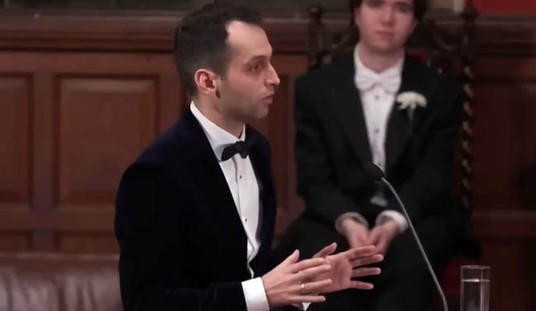I guess the Hyde Amendment that Congress has passed every single year for decades must have been immoral, in Senator Dianne Feinstein’s view. CNS News asks Feinstein about the morality of imposing the costs of abortions on people who object to them, and Feinstein replies with a couple of non-sequiturs you’ll be hearing over the remaining debate on ObamaCare:
As the Senate was debating the Nelson amendment Tuesday, CNSNews.com asked Feinstein: “Is it morally right to use tax dollars from pro-life Americans to cover insurance plans that cover abortion?”
Feinstein said: “Is it morally correct? Yes, I believe it is. Abortion is legal, and there (are) certain very tragic circumstances that a woman finds herself in. Married, with an unborn baby that’s unable to survive outside of the womb, her doctor tells her it’s a threat to her health. I think she ought to have a policy available to her.”
CNSNews.com asked: “So it’s morally right for pro-life taxpayers to have to help pay for plans that cover abortion?”
Feinstein responded: “Please. We pay for a lot of things that we may or may not agree with, and taxpayers pay for it, for those things, as well.”
There are a couple of problems with Feinstein’s argument, not the least of which is that the Hyde Amendment, the Stupak Amendment, and the Nelson-Casey Amendment all made exceptions for rape, incest, and a threat to the mother’s life. Furthermore, the other potential “tragic circumstances” all have to do with choices the mother made, whether married or unmarried. And none of these pieces of legislation have to do with outlawing abortion altogether, but instead put the responsibility for funding said abortions on the person who wants one.
Feinstein does have one thing correct; tax dollars go to a lot of things that taxpayers may find objectionable, whether that’s the war in Afghanistan to studies on the effect of alcohol on young adults. However, this is also a non-sequitur in that people may find some public policy objectionable, but that’s not the same thing as subsidizing the personal choices of individuals. Besides, Feinstein’s statement is really an argument for more limited government, however, not an argument that supports promiscuous spending by elected officials.









Join the conversation as a VIP Member